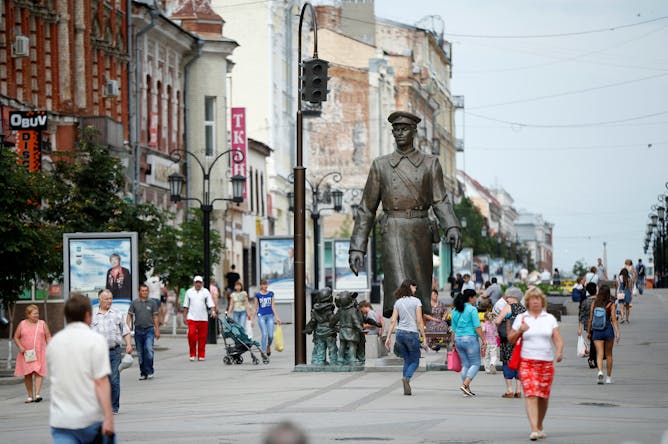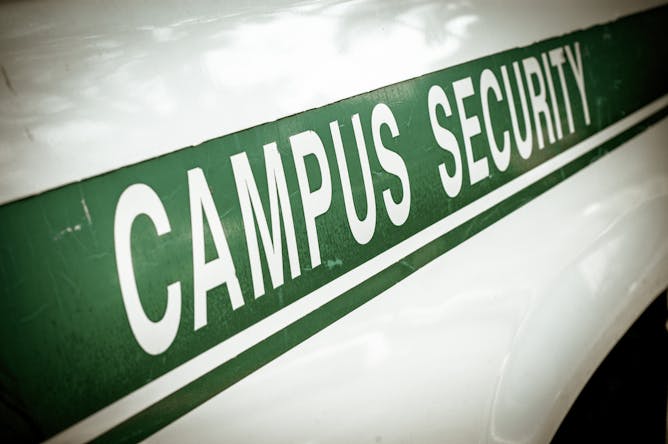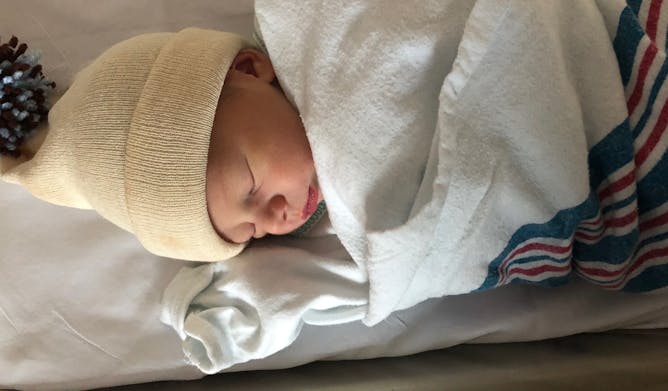|
|
|
Editor's note
|
|
Today President Donald Trump is expected to meet Russian President Vladimir Putin. The summit comes days after 12 Russian nationals were indicted for interfering with the 2016 presidential election. Just 16 percent of Americans have a favorable view of Putin – but what do Russians think about Trump and Americans? Erik Nisbet and Olga Kamenchuk from The Ohio State University report on the results of a recent Russian opinion poll.
A college campus is supposed to be a welcoming environment, especially for students, staff and faculty. But campus police and biased people who call the police can make the university experience an unsettling one for minorities who are often seen as outsiders.
The birth rate in the U.S. has dropped to an all-time low, and if West Virginia University health policy scholar Simon Haeder’s experience is typical, it’s easy to understand why. The costs of health care and day care while also paying back student loans may be too much for many middle class young people to handle. “I cannot imagine how overwhelming the experience must be for someone with fewer resources and less of an
understanding about health care in America,” he writes.
|
Emily Costello
Deputy Editor
|

|
|
Top stories
|

People walk on Leningradskaya street in Samara, Russia, 2017.
REUTERS/David Mdzinarishvili
Erik C. Nisbet, The Ohio State University; Olga Kamenchuk, The Ohio State University
For example, 77 percent of Russians see Trump as 'self-centered.'
|

College campuses can be unwelcoming environments for racial minorities.
Mr. Doomits/www.shutterstock.com
Brian N. Williams, University of Virginia; Andrea M. Headley, University of California, Berkeley; Megan LePere-Schloop, The Ohio State University
A longstanding view of minorities as outsiders contributes to negative encounters with campus police. A researcher argues how greater empathy can lessen the urge to call the police in the first place.
|

Lukas Haeder, the author’s son, on his birthday.
Simon Haeder/Author
Simon F. Haeder, West Virginia University
A routine childbirth proves expensive and complicated. Insurance company adjustments, inconsistent billing and mystery costs flummoxed even a health policy expert and his wife, a teacher.
|
|
|
Science + Technology
|
-
Adam Barsouk, University of Pittsburgh
Scientists have long thought that regions of DNA called telomeres control how long you live. We are now learning that it is your diet and lifestyle that shape your telomeres, not the other way around.
-
Jeff Inglis, The Conversation
Russian government agents allegedly penetrated US state and county election databases. Scholars of election security offer insight and recommendations about what to do now.
-
Heather Woods, Kansas State University
There are several reasons people might find smart devices equipped with an always-on microphone both attractive and unsettling.
-
Sara Jensen, Carthage College
In this professor's class, there are no calculators. Instead, students learn advanced math by talking, drawing pictures, playing with beach balls – and knitting.
|
|
|
|
|
|
|
|
Trending on site
|
-
Peter Gall, West Virginia University
Over the last three decades, the number of US pilots has decreased by 30 percent. That problem is only going to get worse as demand increases.
-
Jason Dedrick, Syracuse University; Greg Linden, University of California, Berkeley; Kenneth L. Kraemer, University of California, Irvine
The president launched a trade war largely on the premise of a massive trade deficit with China. A closer look at the iPhone shows why he's wrong.
-
Andrew Alan Johnson, Princeton University
A scholar, who has conducted research on the Thai caves in which 12 children were recently trapped, explains their power and appeal, including the rituals and myth surrounding these sacred sites.
|
|
|
|
| |
| |
|
|
|
|
|
|
|